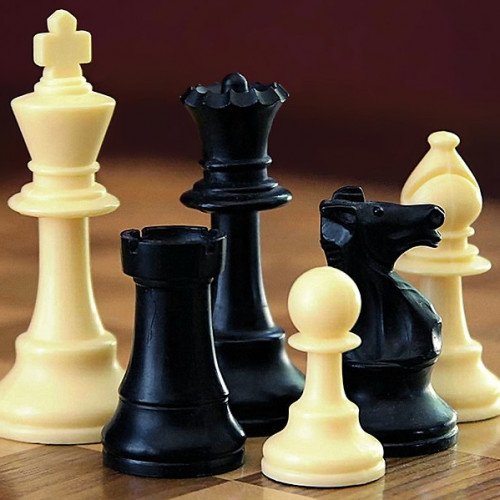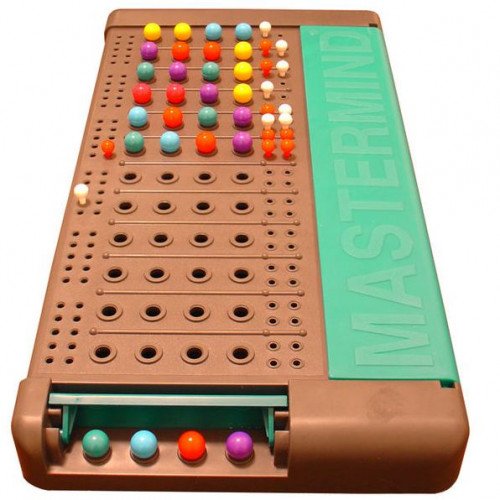CHESS VS MASTERMIND

CHESS
Chess is a recreational and competitive board game played between two players. It is sometimes called Western or international chess to distinguish it from related games such as xiangqi. The current form of the game emerged in Southern Europe during the second half of the 15th century after evolving from similar, much older games of Indian and Persian origin. Today, chess is one of the world's most popular games, played by millions of people worldwide at home, in clubs, online, by correspondence, and in tournaments. Chess is an abstract strategy game and involves no hidden information. It is played on a square chessboard with 64 squares arranged in an eight-by-eight grid. At the start, each player (one controlling the white pieces, the other controlling the black pieces) controls sixteen pieces: one king, one queen, two rooks, two knights, two bishops, and eight pawns. The object of the game is to checkmate the opponent's king, whereby the king is under immediate attack (in "check") and there is no way to remove it from attack on the next move. There are also several ways a game can end in a draw. Organized chess arose in the 19th century. Chess competition today is governed internationally by FIDE (International Chess Federation). The first universally recognized World Chess Champion, Wilhelm Steinitz, claimed his title in 1886; Magnus Carlsen is the current World Champion. A huge body of chess theory has developed since the game's inception. Aspects of art are found in chess composition; and chess in its turn influenced Western culture and art and has connections with other fields such as mathematics, computer science, and psychology. One of the goals of early computer scientists was to create a chess-playing machine. In 1997, Deep Blue became the first computer to beat the reigning World Champion in a match when it defeated Garry Kasparov. Today's chess engines are significantly stronger than even the best human players, and have deeply influenced the development of chess theory.
Statistics for this Xoptio

MASTERMIND
Mastermind or Master Mind is a code-breaking game for two players. The modern game with pegs was invented in 1970 by Mordecai Meirowitz, an Israeli postmaster and telecommunications expert.It resembles an earlier pencil and paper game called Bulls and Cows that may date back a century. The game is based on an older, paper based game called Bulls and Cows. A computer adaptation of it was run in the 1960s on Cambridge University’s Titan computer system, where it was called 'MOO'. This version was written by Frank King. There was also another version for the TSS/8 time sharing system, written by J.S. Felton and finally a version for the Multics system at MIT by Jerrold Grochow. The modern game with pegs was invented in 1970 by Mordecai Meirowitz, an Israeli postmaster and telecommunications expert. Meirowitz presented the idea to many major toy companies but, after showing it at the Nuremberg International Toy Fair, it was picked up by a plastics company, Invicta Plastics, based near Leicester, UK. Invicta purchased all the rights to the game and the founder, Edward Jones-Fenleigh, refined the game further. It was released in 1971–2. Since 1971, the rights to Mastermind have been held by Invicta Plastics. (Invicta always named the game Master Mind.) They originally manufactured it themselves, though they have since licensed its manufacture to Hasbro worldwide, with the exception of Pressman Toys and Orda Industries who have the manufacturing rights to the United States and Israel, respectively. Starting in 1973, the game box featured a photograph of a white man in a white jacket seated in the foreground, with a young Asian woman of high caste standing behind him with the golden symbols of office visible on her sari, denoting the power and intellect behind the throne. The two amateur models (Bill Woodward and Cecilia Fung) reunited in June 2003 to pose for another publicity photo.